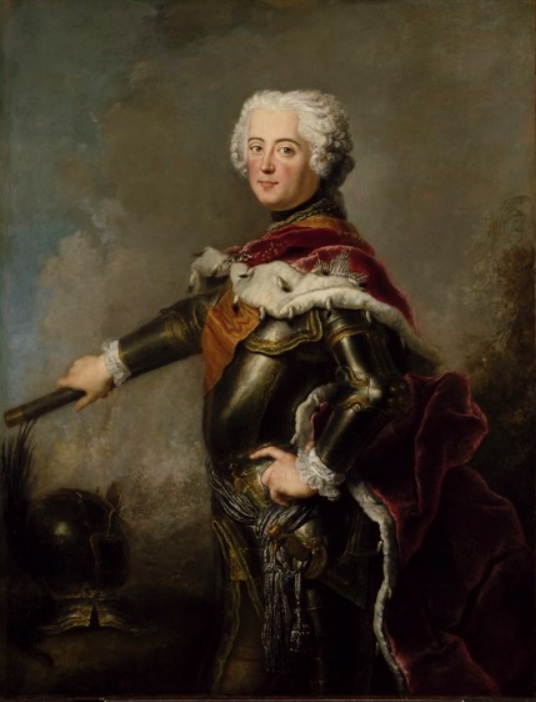
Frederick the Great (Frederick II King of Prussia, born in Berlin on January 24, 1712, has been proclaimed by some historians as the greatest monarch in modern history. When he became the King of Prussia in 1740, one of his ambitions was to raise Berlin to the status of Paris and London as the center of European culture and the seat of intellectual inquiry. To this end, he established the Berlin Academy and recruited the most influential European intellectuals as members.
Among the luminaries who joined the Academy were philosophers Immanuel Kant, D’Alembert, Pierre Louis de Maupertuis, Voltaire, and Francesco Algarotti. Intellectual giants from the field of mathematics included Leonhard Euler, Joseph-Louis Lagrange, and Johann Heinrich Lambert who played a strong role in establishing the Berlin Academy as the premier center for mathematical research.
During his 32-year reign from 1740 through 1772, Frederick brought Prussia to the forefront as a military power and a center of culture. Even 150 years after his death, Frederick had been regarded as the symbol of the German national identity. However, when he was eulogized as an icon of German supremacy by the Nazis in World War II, many historians began to distance themselves from Frederick’s adoration. However, no one can deny that we are all beneficiaries of his respect for intellectual pursuit. He is reported to have said, “The greatest and noblest pleasure we have in this world is to discover new truths, and the next is to shake off old prejudices.”
